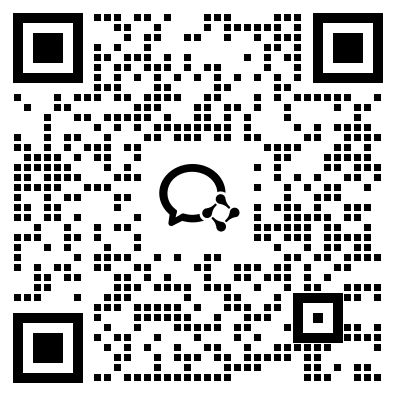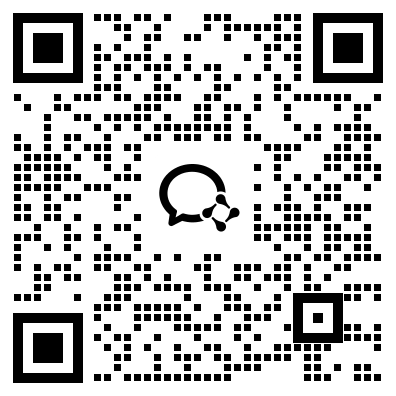考研201英语(一)在线题库每日一练(一百四十)
摘要:以下是希赛网给大家分享考研201英语(一)在线题库每日一练,希望通过刷题可以帮助大家巩固重要知识点,对知识点查漏补缺,祝愿大家能顺利通过考试!
本文提供考研201英语(一)在线题库每日一练,以下为具体内容
1、Bankers have been blaming themselves for their troubles in public. Behind the scenes, they have been taking aim at someone else: the accounting standard-setters. Their rules, moan the banks, have forced them to report enormous losses, and it's just not fair. These rules say they must value some assets at the price a third party would pay, not the price managers and regulators would like them to fetch.Unfortunately, banks' lobbying now seems to be working. The details may be unknowable, but the independence of standard-setters, essential to the proper functioning of capital markets, is being compromised. And, unless banks carry toxic assets at prices that attract buyers, reviving the banking system will be difficult.After a bruising encounter with Congress, America's Financial Accounting Standards Board (FASB) rushed through rule changes. These gave banks more freedom to use models to value illiquid assets and more flexibility in recognizing losses on long-term assets in their income statements. Bob Herz, the FASB's chairman, cried out against those who “question our motives.” Yet bank shares rose and the changes enhance what one lobbying group politely calls “the use of judgment by management.”European ministers instantly demanded that the International Accounting Standards Board (IASB) do likewise. The IASB says it does not want to act without overall planning, but the pressure to fold when it completes its reconstruction of rules later this year is strong. Charlie McCreevy, a European commissioner, warned the IASB that it did “not live in a political vacuum” but “in the real world” and that Europe could yet develop different rules.It was banks that were on the wrong planet, with accounts that vastly overvalued assets. Today they argue that market prices overstate losses, because they largely reflect the temporary illiquidity of markets, not the likely extent of bad debts. The truth will not be known for years. But banks' shares trade below their book value, suggesting that investors are skeptical. And dead markets partly reflect the paralysis of banks which will not sell assets for fear of booking losses, yet are reluctant to buy all those supposed bargains.To get the system working again, losses must be recognized and dealt with. America's new plan to buy up toxic assets will not work unless banks mark assets to levels which buyers find attractive. Successful markets require independent and even combative standard-setters. The FASB and IASB have been exactly that, cleaning up rules on stock options and pensions, for example, against hostility from special interests. But by giving in to critics now they are inviting pressure to make more concessions.1.Bankers complained that they were forced to( ).2.According to the author, the rule changes of the FASB may result in ( ). 3.According to Paragraph 4, McCreevy objects to the IASB's attempt to ( ). 4.The author thinks the banks were “on the wrong planet” in that they ( ). 5.The author's attitude towards standard-setters is one of( ).
问题1
A、follow unfavorable asset evaluation rules
B、collect payments from third parties
C、cooperate with the price managers
D、reevaluate some of their assets
问题2
A、the diminishing role of management
B、the revival of the banking system
C、the banks' long-term asset losses
D、the weakening of its independence
问题3
A、keep away from political influences
B、evade the pressure from their peers
C、act on their own in rule-setting
D、take gradual measures in reform
问题4
A、misinterpreted market price indicators
B、exaggerated the real value of their assets
C、neglected the likely existence of bad debts
D、denied booking losses in their sale of assets
问题5
A、satisfaction
B、skepticism
C、objectiveness
D、sympathy
2、Ancient Greek philosopher Aristotle viewed laughter as “a bodily exercise precious to health.” But(1)some claims to the contrary, laughing probably has little influence on physical fitness. Laughter does (2)short-term changes in the function of the heart and its blood vessels, (3) heart rate and oxygen consumption. But because hard laughter is difficult to (4), a good laugh is unlikely to have (5) benefits the way, say, walking or jogging does. (6), instead of straining muscles to build them, as exercise does, laughter apparently accomplishes the (7), studies dating back to the 1930's indicate that laughter (8) muscles, decreasing muscle tone for up to 45 minutes after the laugh dies down. Such bodily reaction might conceivably help (9) the effects of psychological stress. Anyway, the act of laughing probably does produce other types of (10) feedback, that improve an individual's emotional state. (11) one classical theory of emotion, our feelings are partially rooted (12) physical reactions. It was argued at the end of the 19th century that humans do not cry (13) they are sad but they become sad when the tears begin to flow. Although sadness also (14) tears, evidence suggests that emotions can flow (15) muscular responses. In an experiment published in 1988, social psychologist Fritz Strack of the University of Würzburg in Germany asked volunteers to (16) a pen either with their teeth—thereby creating an artificial smile—or with their lips, which would produce a(n)(17) expression. Those forced to exercise their smiling muscles(18) more enthusiastically to funny cartoons than did those whose months were contracted in a frown,(19) that expressions may influence emotions rather than just the other way around. (20), the physical act of laughter could improve mood.
问题1
A、among
B、except
C、despite
D、like
问题2
A、reflect
B、demand
C、indicate
D、produce
问题3
A、stabilizing
B、boosting
C、impairing
D、determining
问题4
A、transmit
B、sustain
C、evaluate
D、observe
问题5
A、measurable
B、manageable
C、affordable
D、renewable
问题6
A、In turn
B、In fact
C、In addition
D、In brief
问题7
A、opposite
B、impossible
C、average
D、expected
问题8
A、hardens
B、weakens
C、tightens
D、relaxes
问题9
A、aggravate
B、generate
C、moderate
D、enhance
问题10
A、physical
B、mental
C、subconscious
D、internal
问题11
A、Except for
B、According to
C、Due to
D、As for
问题12
A、with
B、on
C、in
D、at
问题13
A、unless
B、until
C、if
D、because
问题14
A、exhausts
B、follows
C、precedes
D、suppresses
问题15
A、into
B、from
C、towards
D、beyond
问题16
A、fetch
B、bite
C、pick
D、hold
问题17
A、disappointed
B、excited
C、joyful
D、indifferent
问题18
A、adapted
B、catered
C、turned
D、reacted
问题19
A、suggesting
B、requiring
C、mentioning
D、supposing
问题20
A、Eventually
B、Consequently
C、Similarly
D、Conversely
3、It's no surprise that Jennifer Senior's insightful, provocative magazine cover story, “I love My Children, I Hate My Life,” is arousing much chatter—nothing gets people talking like the suggestion that child rearing is anything less than a completely fulfilling, life-enriching experience. Rather than concluding that children make parents either happy or miserable, Senior suggests we need to redefine happiness: instead of thinking of it as something that can be measured by moment-to-moment joy, we should consider being happy as a past-tense condition. Even though the day-to-day experience of raising kids can be soul-crushingly hard, Senior writes that “the very things that in the moment dampen our moods can later be sources of intense gratification and delight.” The magazine cover showing an attractive mother holding a cute baby is hardly the only Madonna-and-child image on newsstands this week. There are also stories about newly adoptive—and newly single—mom Sandra Bullock, as well as the usual “Jennifer Aniston is pregnant” news. Practically every week features at least one celebrity mom, or mom-to-be, smiling on the newsstands. In a society that so persistently celebrates procreation, is it any wonder that admitting you regret having children is equivalent to admitting you support kitten-killing? It doesn't seem quite fair, then, to compare the regrets of parents to the regrets of the children. Unhappy parents rarely are provoked to wonder if they shouldn't have had kids, but unhappy childless folks are bothered with the message that children are the single most important thing in the world: obviously their misery must be a direct result of the gaping baby-size holes in their lives. Of course, the image of parenthood that celebrity magazines like Us Weekly and People present is hugely unrealistic, especially when the parents are single mothers like Bullock. According to several studies concluding that parents are less happy than childless couples, single parents are the least happy of all. No shock there, considering how much work it is to raise a kid without a partner to lean on; yet to hear Sandra and Britney tell it, raising a kid on their “own” (read: with round-the-clock help) is a piece of cake. It's hard to imagine that many people are dumb enough to want children just because Reese and Angelina make it look so glamorous: most adults understand that a baby is not a haircut. But it's interesting to wonder if the images we see every week of stress-free, happiness-enhancing parenthood aren't in some small, subconscious way contributing to our own dissatisfactions with the actual experience, in the same way that a small part of us hoped getting “the Rachel” might make us look just a little bit like Jennifer Aniston. 1.Jennifer Senior suggests in her article that raising a child can bring ( ). 2.We learn from Paragraph 2 that( ).3.It is suggested in Paragraph 3 that childless folks ( ). 4.According to Paragraph 4, the message conveyed by celebrity magazines is ( ). 5.Which of the following can be inferred from the last paragraph?
问题1
A、temporary delight
B、enjoyment in progress
C、happiness in retrospect
D、lasting reward
问题2
A、celebrity moms are a permanent source for gossip
B、single mothers with babies deserve greater attention
C、news about pregnant celebrities is entertaining
D、having children is highly valued by the public
问题3
A、are constantly exposed to criticism
B、are largely ignored by the media
C、fail to fulfill their social responsibilities
D、are less likely to be satisfied with their life
问题4
A、soothing
B、ambiguous
C、compensatory
D、misleading
问题5
A、Having children contributes little to the glamour of celebrity moms.
B、Celebrity moms have influenced our attitude towards child rearing.
C、Having children intensifies our dissatisfaction with life.
D、We sometimes neglect the happiness from child rearing.
4、People are, on the whole, poor at considering background information when making individual decisions. At first glance this might seem like a strength that (1) the ability to make judgments which are unbiased by (2) factors. But Dr. Uri Simonsohn speculated that an inability to consider the big (3) was leading decision-makers to be biased by the daily samples of information they were working with. (4), he theorised that a judge (5) of appearing too soft (6) crime might be more likely to send someone to prison (7) he had already sentenced five or six other defendants only to forced community service on that day.To (8) this idea, he turned to the university-admissions process. In theory, the (9) of an applicant should not depend on the few others (10) randomly for interview during the same day, but Dr Simonsohn suspected the truth was (11).He studied the results of 9,323 MBA interviews (12) by 31 admissions officers. The interviewers had (13) applicants on a scale of one to five. This scale (14) numerous factors into consideration. The scores were (15) used in conjunction with an applicant’s score on the Graduate Management Admission Test, or GMAT, a standardised exam which is (16) out of 800 points, to make a decision on whether to accept him or her.Dr Simonsonh found if the score of the previous candidate in a daily series of interviewees was 0.75 points or more higher than that of the one (17) that, then the score for the next applicant would (18) by an average of 0.075 points. This might sound small, but to (19) the effects of such a decrease a candidate would need 30 more GMAT points than would otherwise have been (20).
问题1
A、grants
B、submits
C、transmits
D、delivers
问题2
A、minor
B、objective
C、crucial
D、external
问题3
A、issue
B、vision
C、picture
D、moment
问题4
A、For example
B、On average
C、In principle
D、Above all
问题5
A、fond
B、fearful
C、capable
D、thoughtless
问题6
A、in
B、on
C、to
D、for
问题7
A、if
B、until
C、though
D、unless
问题8
A、promote
B、emphasize
C、share
D、test
问题9
A、decision
B、quality
C、status
D、success
问题10
A、chosen
B、studied
C、found
D、identified
问题11
A、exceptional
B、defensible
C、replaceable
D、otherwise
问题12
A、inspired
B、expressed
C、conducted
D、secured
问题13
A、assigned
B、rated
C、matched
D、arranged
问题14
A、put
B、got
C、gave
D、took
问题15
A、instead
B、then
C、ever
D、rather
问题16
A、selected
B、passed
C、marked
D、introduced
问题17
A、before
B、after
C、above
D、below
问题18
A、jump
B、float
C、drop
D、fluctuate
问题19
A、achieve
B、undo
C、maintain
D、disregard
问题20
A、promising
B、possible
C、necessary
D、helpful
5、Though not biologically related, friends are as “related” as fourth cousins, sharing about 1% of genes. That is(1)a study, published from the University of California and Yale University in the Proceedings of the National Academy of Sciences, has (2). The study is a genome-wide analysis conducted (3) 1,932 unique subjects which (4) pairs of unrelated friends and unrelated strangers. The same people were used in both (5). While 1% may seem (6), it is not so to a geneticist. As James Fowler, professor of medical genetics at UC San Diego, says, “Most people do not even (7) their fourth cousins but somehow manage to select as friends the people who (8) our kin.” The team also developed a "friendship score" which can predict who will be your friend based on their genes.The study (9) found that the genes for smell were something shared in friends but not genes for immunity. Why this similarity exists in smell genes is difficult to explain, for now, (10), as the team suggests, it draws us to similar environments but there is more (11) it. There could be many mechanisms working together that (12) us in choosing genetically similar friends (13) “functional kinship” of being friends with (14)! One of the remarkable findings of the study was the similar genes seem to be evolving (15) than other genes. Studying this could help (16) why human evolution picked pace in the last 30,000 years, with social environment being a major (17) factor. The findings do not simply explain people's (18) to befriend those of similar (19) backgrounds, say the researchers. Though all the subjects were drawn from a population of European extraction, care was taken to (20) that all subjects, friends and strangers, were taken from the same population.
问题1
A、what
B、why
C、how
D、when
问题2
A、defended
B、concluded
C、withdrawn
D、advised
问题3
A、for
B、with
C、by
D、on
问题4
A、separated
B、sought
C、compared
D、connected
问题5
A、tests
B、objects
C、samples
D、examples
问题6
A、insignificant
B、unexpected
C、unreliable
D、incredible
问题7
A、visit
B、miss
C、know
D、seek
问题8
A、surpass
B、influence
C、favor
D、resemble
问题9
A、again
B、also
C、instead
D、thus
问题10
A、Meanwhile
B、Furthermore
C、Likewise
D、Perhaps
问题11
A、about
B、to
C、from
D、like
问题12
A、limit
B、observe
C、confuse
D、drive
问题13
A、according to
B、rather than
C、regardless of
D、along with
问题14
A、chances
B、responses
C、benefits
D、missions
问题15
A、faster
B、slower
C、later
D、earlier
问题16
A、forecast
B、remember
C、express
D、understand
问题17
A、unpredictable
B、contributory
C、controllable
D、disruptive
问题18
A、tendency
B、decision
C、arrangement
D、endeavor
问题19
A、political
B、religious
C、ethnic
D、economic
问题20
A、see
B、show
C、prove
D、tell
点击查看【完整】试卷>>延伸阅读

考研微信公众号

考研备考资料免费领取
去领取
- 3
- 0
- 0
 专注在线职业教育25年
专注在线职业教育25年









 扫描二维码
扫描二维码
 扫描二维码
扫描二维码








